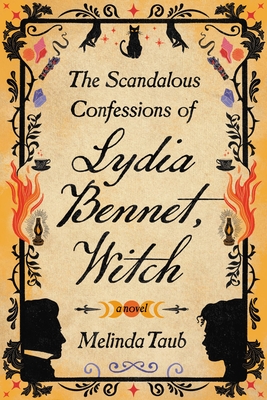 The Scandalous Confessions of Lydia Bennet, Witch by Melinda Taub
The Scandalous Confessions of Lydia Bennet, Witch by Melinda Taub Format: eARC
Source: supplied by publisher via Edelweiss
Formats available: hardcover, paperback, ebook, audiobook
Genres: historical fiction, retellings
Pages: 400
Published by Grand Central Publishing on October 3, 2023
Purchasing Info: Author's Website, Publisher's Website, Amazon, Barnes & Noble, Kobo, Bookshop.org, Better World Books
Goodreads
A sparkling, witchy reimagining of Pride and Prejudice, told from the perspective of the troublesome and—according to her—much-maligned youngest Bennet sister, Lydia.
In this exuberant reimagining of Jane Austen’s Pride and Prejudice, Lydia Bennet puts pen to paper to relate the real events and aftermath of the classic story from her own perspective. Some facts are well known: Mrs. Bennet suffers from her nerves; Mr. Bennet suffers from Mrs. Bennet, and all five daughters suffer from an estate that is entailed only to male heirs.
But Lydia also suffers from entirely different concerns: her best-loved sister Kitty is really a barn cat, and Wickham is every bit as wicked as the world believes him to be, but what else would you expect from a demon? And if you think Mr. Darcy was uptight about dancing etiquette, wait till you see how he reacts to witchcraft. Most of all, Lydia has yet to learn that when you’re a witch, promises have power . . .
Full of enchantment, intrigue, danger, and boundless magic, The Scandalous Confessions of Lydia Bennet, Witch, has all the irreverent wit, strength, and romance of Pride and Prejudice—while offering a highly unexpected redemption for the wildest Bennet sister.
My Review:
I have to confess something. I’m not all that fond of Pride and Prejudice. I did like it when I listened to it, but I didn’t LOVE it the way that so many readers do. Mrs. Bennet drove me as far around the twist as she clearly did Mr. Bennet, which just made the whole thing hard to take. So I’m not a huge fan.
Now that I’ve got that out of my system, let’s get into this new P&P reinterpretation, The Scandalous Confessions of Lydia Bennet, Witch. Which, in spite of not being nearly as scandalous as Lydia Bennet claims they are, turned out to be a surprising amount of fun.
At the heart of this reimagining of the classic is that bit that comes after the comma in the title. Lydia Bennet was ALWAYS scandalous, at least as far as society’s definitions were concerned. That’s not exactly news, although even the reasons she courted all that scandal and exactly how she fell into it are considerably different here than they seemed to be in the original.
And it’s all due to that one little word, ‘Witch’. In this look at the Bennet family, it’s not a metaphor, and it’s absolutely not a way of saying ‘bitch’ without actually saying it. Lydia Bennet, the disgraced and disgraceful youngest Bennet daughter, is an actual, practicing (although sometimes not nearly enough) witch.
As is her aunt – and a surprising number of the women around Longbourn. Her aunt is her first teacher, the local coven are her first sisters in the Craft, and young Lydia doesn’t learn nearly enough from either of them.
Which leads to all the trouble she eventually finds herself in. Because nothing and no one she meets is exactly what they seem – and Lydia is much too young and naive to figure that out before it’s much too late.
 Escape Rating B: This wants to be Lydia Bennet’s redemption story. Or rather, the way it’s written, as Lydia’s confessional to an initially unnamed party, Lydia thinks it’s her redemption story when it’s actually not. It IS a confession, of sorts, but it’s a self-justification story. It’s her long-winded explanation of everything that happened and why it happened the way it did. It’s her attempt to win forgiveness. A forgiveness she only proves herself deserving of when she DOESN’T send the damn thing.
Escape Rating B: This wants to be Lydia Bennet’s redemption story. Or rather, the way it’s written, as Lydia’s confessional to an initially unnamed party, Lydia thinks it’s her redemption story when it’s actually not. It IS a confession, of sorts, but it’s a self-justification story. It’s her long-winded explanation of everything that happened and why it happened the way it did. It’s her attempt to win forgiveness. A forgiveness she only proves herself deserving of when she DOESN’T send the damn thing.
Lydia’s long-winded confession – it’s not that the book itself is long-winded but Lydia IS rather fascinated with the words coming out of her pen – occasionally interspersed with Lydia’s perspective on the events that are happening around her while she’s writing about the things she’s already done that brought her to this point, does an excellent job of pulling the reader into Lydia’s thoughts and her world.
Whether she actually manages to justify any of her behavior is an entirely different story, but it’s fascinating to watch her try.
In the end, Lydia comes off as naive, pragmatic and expedient in equal measure. She does the things she does because she feels her acts are the only possible choice she has at the time, and it’s only afterwards that she sees that she’s made terrible mistakes. Not because she’s a terrible person, but because at the time she simply doesn’t know any better. It reminds the reader rather forcibly that Lydia is ONLY 15 in a world that sheltered young women to what now seems an impossible and unconscionable degree.
The thing that made this work for me wasn’t the strong link to Pride and Prejudice, but rather the strength of its story of female friendship and sisterhood, and its reminder that in the end, the villains are merely human and that humans are the true monsters after all. (The witchy politics reminded me rather a lot of Her Majesty’s Royal Coven in spite of the two centuries that lie between their settings.)
So if you’re a big fan of P&P, this reimagining of the classic – with witches and talking cats! – takes the story in a magical direction but doesn’t go over the top to the place that Pride and Prejudice and Zombies camped out to. It doesn’t hew quite as closely to the more realistic interpretation in The Other Bennet Sister by Janice Hadlow but still puts a new spin on a very familiar character.
I still don’t really like Lydia, and her mother is a straight-up nightmare, but this story did give me a much more sympathetic understanding of Lydia’s character although her parents and their relationship still drive me batty. Howsomever, while I still may not like Lydia, this paranormal perspective of her story does put her in a whole new light – and it’s a whole lot of fun into the bargain!
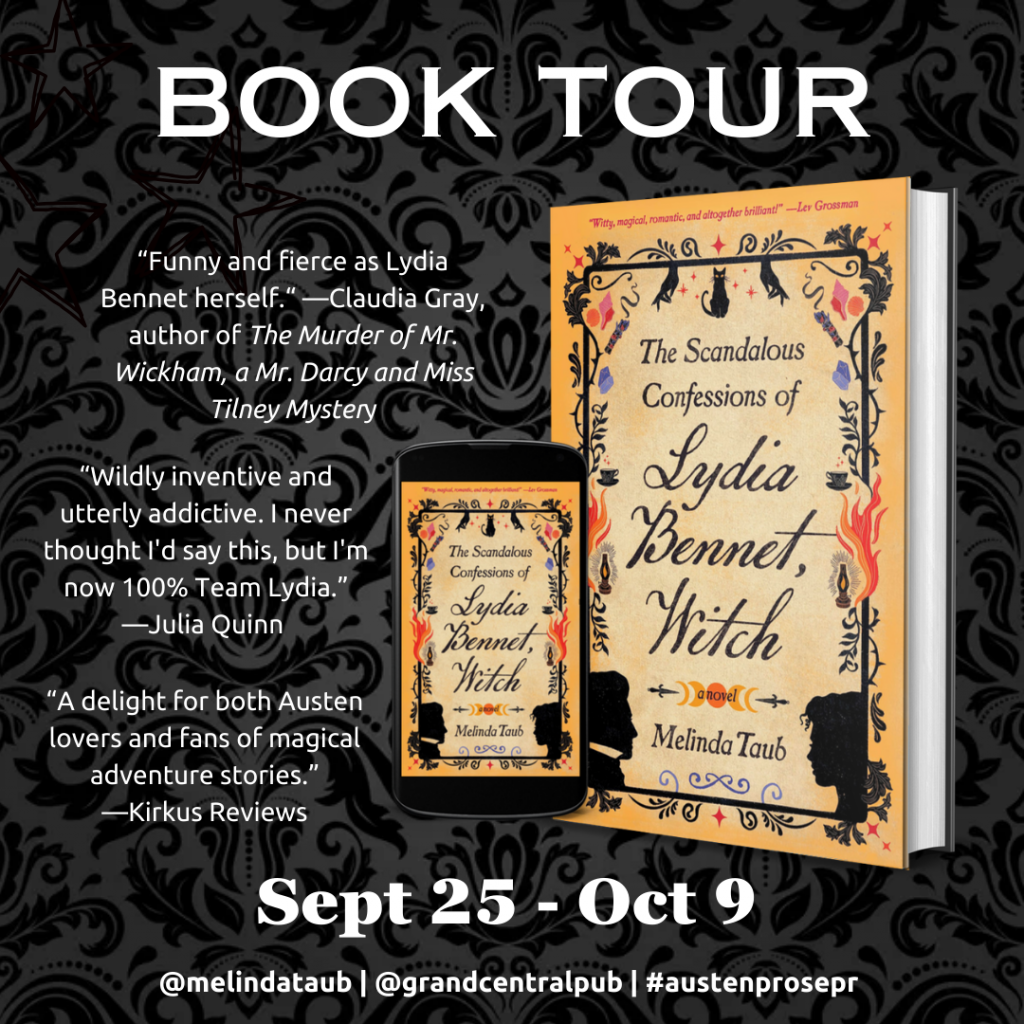

 The Book Club Hotel by
The Book Club Hotel by  Escape Rating B+: I picked this up for two reasons, and I’m not sure which is first or second. The whole concept of a vacation just to read and spend time with lifelong friends and read, (did I mention read?) and relax and oh, yes, read – sounds a bit like heaven. And the setting of The Book Club Hotel seemed particularly idyllic, including a brief trip to a ‘Winter Wonderland’ without having to stick around for the next several months of freezing temperatures, gray snow and mud. (Been there, done that, the t-shirts are all long-sleeved and insulated.)
Escape Rating B+: I picked this up for two reasons, and I’m not sure which is first or second. The whole concept of a vacation just to read and spend time with lifelong friends and read, (did I mention read?) and relax and oh, yes, read – sounds a bit like heaven. And the setting of The Book Club Hotel seemed particularly idyllic, including a brief trip to a ‘Winter Wonderland’ without having to stick around for the next several months of freezing temperatures, gray snow and mud. (Been there, done that, the t-shirts are all long-sleeved and insulated.)
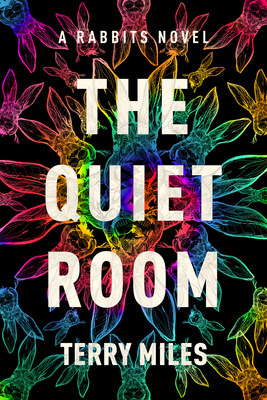 The Quiet Room (Rabbits, #2) by
The Quiet Room (Rabbits, #2) by 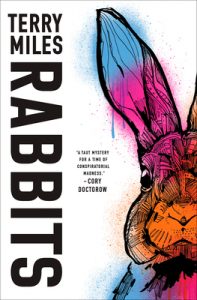 Escape Rating B: I honestly did not expect to like The Quiet Room. The first book in the series, titled
Escape Rating B: I honestly did not expect to like The Quiet Room. The first book in the series, titled 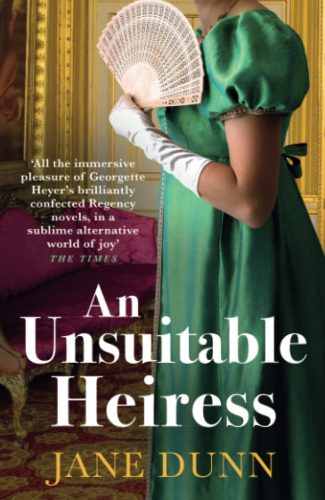 An Unsuitable Heiress by
An Unsuitable Heiress by 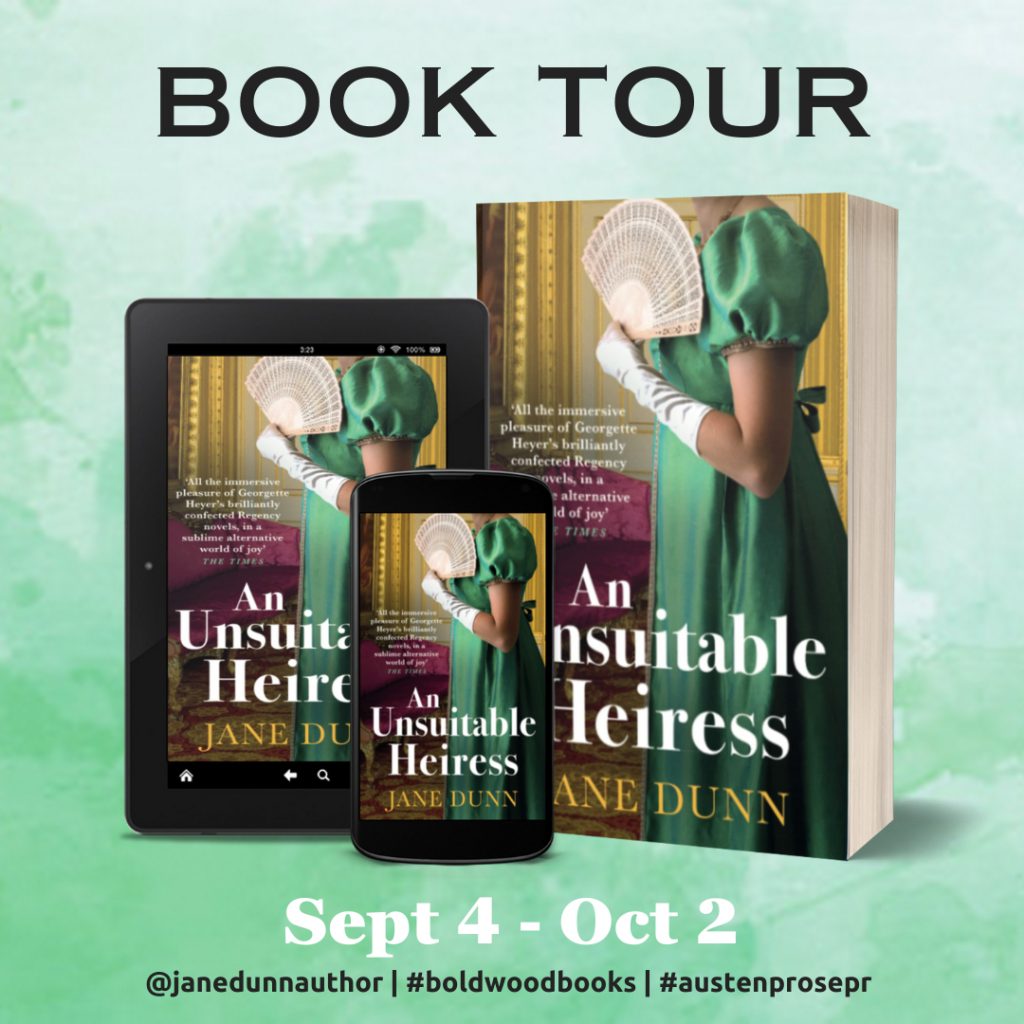
 Fury: A Fake Dating Workplace Romance (Fury Brothers Book 1) by
Fury: A Fake Dating Workplace Romance (Fury Brothers Book 1) by 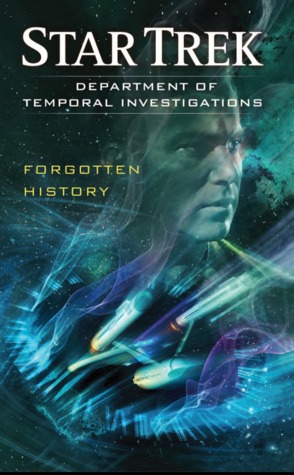 Forgotten History (Star Trek: Department of Temporal Investigations, #2) by
Forgotten History (Star Trek: Department of Temporal Investigations, #2) by 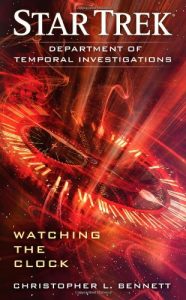 But Kirk, for all of his temporal escapades, and in spite of the way that DTI investigates the ways and means in which time looks back on itself, is more than a century in their rear view mirror. So to speak. And as DTI Agents Lucsly and Dulmur discovered in the first book in the DTI series,
But Kirk, for all of his temporal escapades, and in spite of the way that DTI investigates the ways and means in which time looks back on itself, is more than a century in their rear view mirror. So to speak. And as DTI Agents Lucsly and Dulmur discovered in the first book in the DTI series, 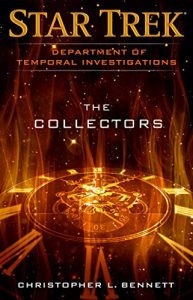 Which means that, while I did like Forgotten History quite a bit, a good bit of that is due to the high nostalgia factor in going back to the era of
Which means that, while I did like Forgotten History quite a bit, a good bit of that is due to the high nostalgia factor in going back to the era of 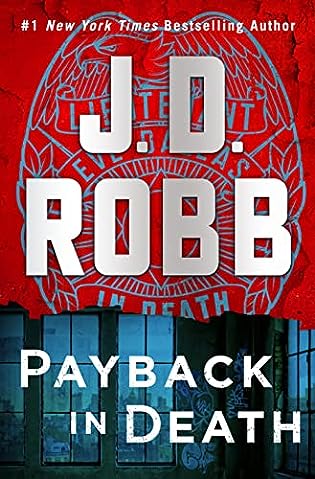 Payback in Death (In Death, #57) by
Payback in Death (In Death, #57) by  Escape Rating B: At this point, I’m here to see how all my ‘book friends’ are doing after whatever happened in the previous book in the series (which in this case was
Escape Rating B: At this point, I’m here to see how all my ‘book friends’ are doing after whatever happened in the previous book in the series (which in this case was 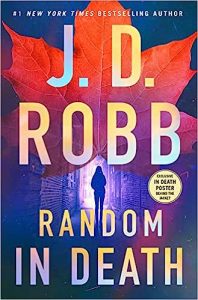 And that the investigation displayed yet again the reasons that Dallas and her squad are the best at what they do.
And that the investigation displayed yet again the reasons that Dallas and her squad are the best at what they do.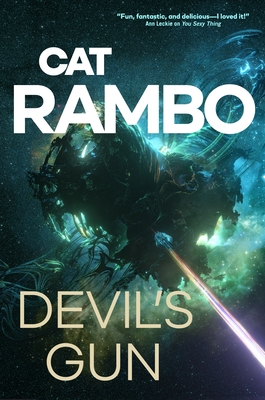 Devil's Gun (Disco Space Opera #2) by
Devil's Gun (Disco Space Opera #2) by  Escape Rating B: I picked this up because I enjoyed the first book in the series,
Escape Rating B: I picked this up because I enjoyed the first book in the series, 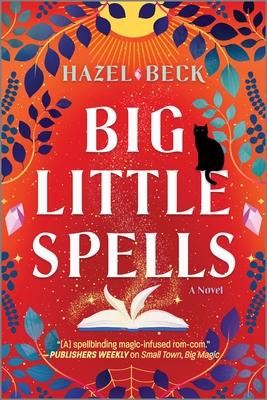 Big Little Spells (Witchlore, #2) by
Big Little Spells (Witchlore, #2) by 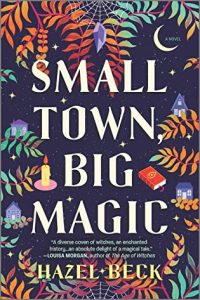 Escape Rating B+: In that opening bit of petty bullshit, I began wondering if the reason that nasty showed up in the river was either because Joywood summoned it themselves – or if they were just so corrupt that like called to like. I’m still debating that particular question – but hunting for the answer certainly kept me turning pages.
Escape Rating B+: In that opening bit of petty bullshit, I began wondering if the reason that nasty showed up in the river was either because Joywood summoned it themselves – or if they were just so corrupt that like called to like. I’m still debating that particular question – but hunting for the answer certainly kept me turning pages.
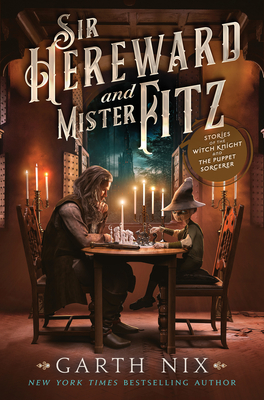 Sir Hereward and Mister Fitz: Stories of the Witch Knight and the Puppet Sorcerer by
Sir Hereward and Mister Fitz: Stories of the Witch Knight and the Puppet Sorcerer by 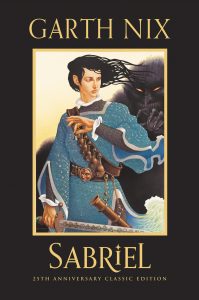 Escape Rating B+: I’ve always meant to read the author’s
Escape Rating B+: I’ve always meant to read the author’s 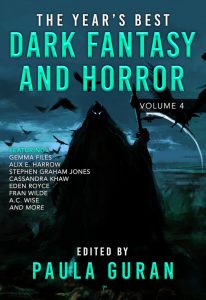 Two final notes about Sir Hereward and Mister Fitz. There’s a story in the forthcoming collection
Two final notes about Sir Hereward and Mister Fitz. There’s a story in the forthcoming collection